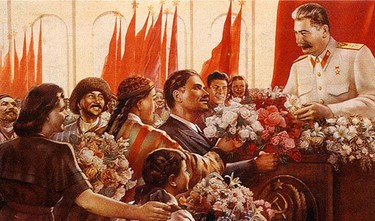
Course Description:
This class aims to engage students in the examination of themes related to twentieth century political history, as well as the history of communication and of warfare. Through the systematic use of a variety of primary sources, this class is also designed to help students develop a strong appreciation of theories and methodologies of historical research, key skills of the history graduate. This module examines means by which states conduct informal activities to promote their domestic and foreign objectives. In particular, it analyses the role of propaganda throughout the twentieth century, focusing on the use of modern mass communication and technology as well as the relationship between media and state and non-state actors. The class is structured around a number of historical themes, which help shed light on the emergence of propaganda, its interpretation and perception. Key themes analysed throughout the course include the First World War and Second World War as examples of ‘total war’; the growth of international radio broadcasting; the creation of centralised propaganda machines in Nazi Germany, the Soviet Union and Fascist Italy in a comparative dimension. During seminars, students will be exposed to relevant primary source material. Particular attention will be given to understanding the theory and practice of propaganda and analysing how technological developments have contributed to shape modern information and mass persuasion.
This class aims to engage students in the examination of themes related to twentieth century political history, as well as the history of communication and of warfare. Through the systematic use of a variety of primary sources, this class is also designed to help students develop a strong appreciation of theories and methodologies of historical research, key skills of the history graduate. This module examines means by which states conduct informal activities to promote their domestic and foreign objectives. In particular, it analyses the role of propaganda throughout the twentieth century, focusing on the use of modern mass communication and technology as well as the relationship between media and state and non-state actors. The class is structured around a number of historical themes, which help shed light on the emergence of propaganda, its interpretation and perception. Key themes analysed throughout the course include the First World War and Second World War as examples of ‘total war’; the growth of international radio broadcasting; the creation of centralised propaganda machines in Nazi Germany, the Soviet Union and Fascist Italy in a comparative dimension. During seminars, students will be exposed to relevant primary source material. Particular attention will be given to understanding the theory and practice of propaganda and analysing how technological developments have contributed to shape modern information and mass persuasion.
- Lecturer: Angela Turner
- Organiser: Manuela Williams